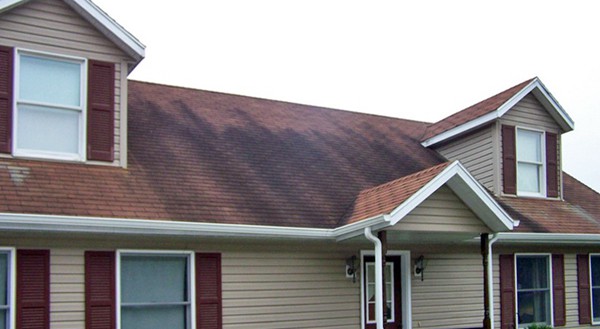Algae growth on asphalt shingles.
What causes black streaks on your roof.
If you re seeing black streaks running along your roof chances are you ve mistaken them for dirt or even mold.
While the dark streaks are unsightly experts tell our team that the greatest danger to the roof is from moisture retention or root damage that algae and other life forms can cause.
Black streaking on roofs is a common problem.
Algae arrive on the rooftop through the air in the form of spores or clumps of cells.
While the streaks do not cause a great deal of damage they can cause the shingle to age prematurely.
Algae may be mistaken for soot dirt or tree droppings most of which typically produce only localized discoloration.
Black streaks on shingled roofs are a common though mysterious sight.
While not immediately damaging they can prematurely age shingles.
Technically the black streaks on roofs are a form of algae known as gloeocapsa magma.
The black streaks running down roofs are actually a hardy algae called gloeocapsa magma.
They re actually algae otherwise known as gloeoapsa magma and they are as nasty as they are resilient.
Over time this algae accumulates developing a black outer coating which causes stains on roof shingles.
Although these dark spots and ugly black streaks on your roof may look like dirt mildew soot or mold what they really are is algae.
The black streaks are also known as black algae or roof mold.
Here s what they are and what to do about them.
The streaks are caused by a type of algae known as gloeocapsa magma.
Those that tend to be the most humid furthermore they will only appear on the north side of the roof.
Algae growth may cause discoloration on roofs resulting in brown or black streaks on a rooftop.
The most common type is known as gloeocapsa magma also known as blue green algae.
Believe it or not those black streaks only appear on roofs in certain areas of the country.

